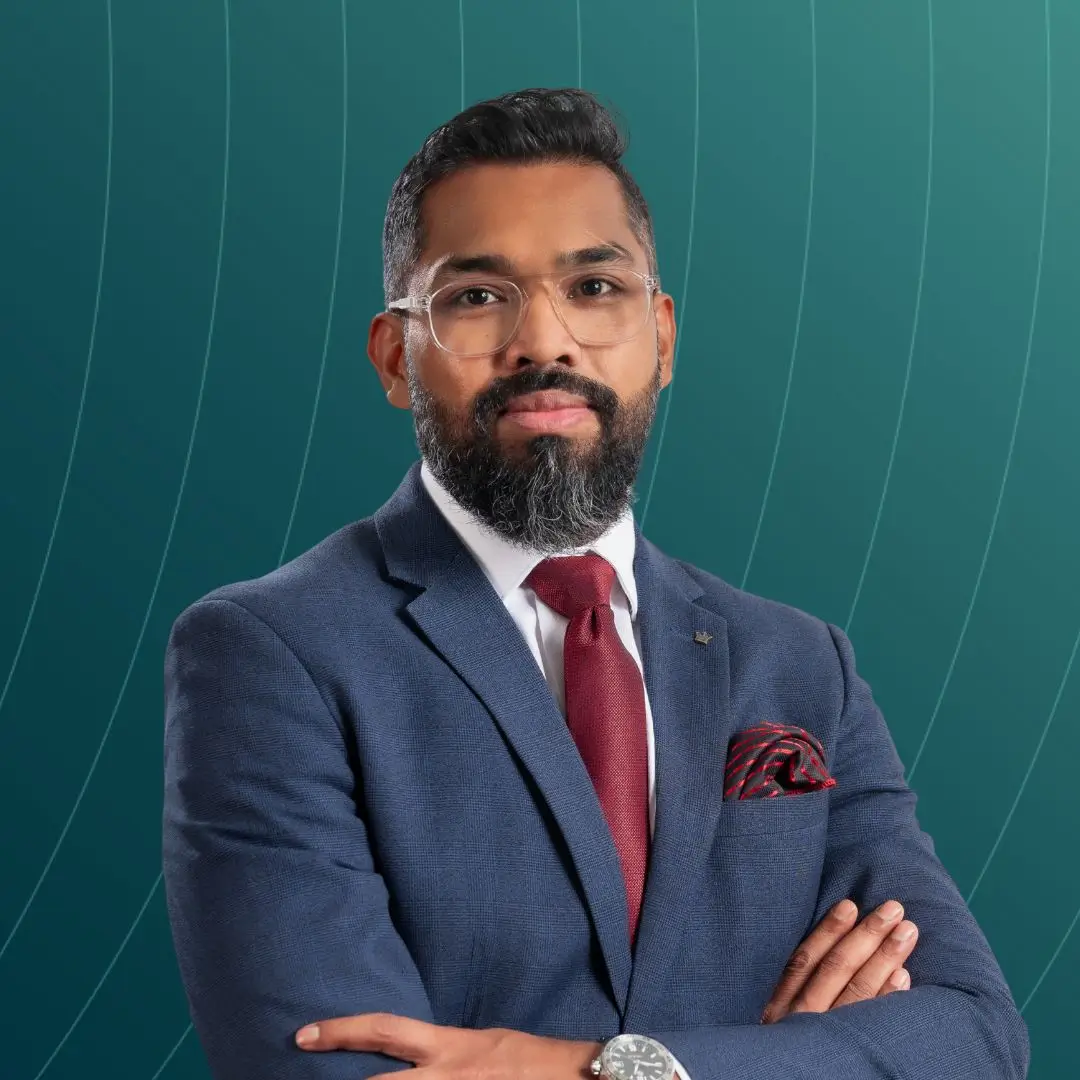.svg)
.svg)
.svg)
.svg)
.svg)
.svg)
.svg)
.svg)
.svg)
.svg)
.svg)
C-level in Jakarta, project start in Düsseldorf: A look behind the scenes of confidential searches abroad

Confidential searches for experienced managers abroad have long been a reality for German SMEs. A company looking for a Regional Sales Manager in Jakarta, for example, will often start the project from their German headquarters – operating in a field of tension between cultural differences, legal peculiarities, and high confidentiality requirements.
Stefan Schuberth, Partner at our Düsseldorf office and a CERC/BDU-certified personnel consultant, has over 20 years' experience supporting international C-level searches. He is highly familiar with the specifics of local markets, from São Paulo to Istanbul, and translates this knowledge for German decision-makers. In this article, he provides insights into the typical challenges of international searches and explains how companies can overcome them.
When is it sensible to hire a German personnel consultancy for confidential searches abroad?
In my opinion, it makes particularly sense to engage a German personnel consultancy when the role reports directly to Germany. This is often the case with joint ventures or international subsidiaries of German SMEs, for example when seeking to fill roles such as managing director, sales manager or plant manager abroad.
Such searches are particularly challenging as they require an understanding of both the German SME sector and its culture, and the situation in the respective target country, in terms of market conditions, labour laws and cultural peculiarities.
German companies are not always familiar with the details of business practices and framework conditions abroad. In such cases, it is particularly valuable to have a partner who understands both German corporate culture and the market conditions in the target country, and whose approach and quality standards you can trust.
This is precisely why Deininger has its own offices in Poland, India, China and the USA. Our consultants in these locations often have German roots or a strong connection to Germany, while also knowing the local country, its language and culture. We always aim to understand the German SME sector and its challenges while offering expertise in the relevant local markets. However, we cannot have our own offices everywhere in the world. Over the years, I have developed an in-depth knowledge of international searches and regularly manage search projects in countries where we do not have our own presence, such as Brazil, Mexico, Turkey and Western and Southern Europe.
What are the typical challenges of international searches?
Firstly, it is important to gain a reliable overview of the local market environment in the target country. In Germany, the major players in an industry are often well known, and international competitors are easy to spot. But in other regions of the world, that’s not always the case. In countries like Brazil or Indonesia, market leaders may include companies that are virtually unknown abroad. Recognizing such structures and connections takes local insight and a trained eye.
Another issue is the cultural differences in how candidates are approached. In some countries, such as those in Southeast Asia, direct approaches from abroad, especially from Germany, are met with great interest. In other regions, potential candidates react much more cautiously. Sensitivity is required in both the approach and the evaluation of the response.
Resumes also show how differently labor markets tick. In Spain, for instance, it is common practice to move between different sectors – from banking to the automotive industry, for example. In the US or the Netherlands, on the other hand, more frequent job changes and shorter periods of employment are socially accepted, representing a flexible labor market. It is important to be able to classify such differences and translate them for clients in Germany to avoid any misunderstandings.
Finally, remuneration also plays an important role. Salary levels vary greatly from country to country. Germany is internationally regarded as a country with high salaries. Applicants may therefore set their expectations higher when applying to a German employer. There are also formal differences: In some countries, such as those in Eastern Europe or Indonesia, it is the net income rather than the gross salary that is stated in job interviews. Being aware of such details is important to ensure that the selection process is professional and free of misunderstandings.

Despite these challenges, what does it take for international searches to succeed?
It always starts with thorough research and market analysis. We compile information from national trade fairs, industry associations, previous search mandates, and existing local contacts to obtain a detailed picture of the local market. In doing so, we analyze not only globally known companies but also local market participants. This creates a sound starting point for the search and a realistic picture of the relevant candidate market.
During the selection process, if we come across resumes with unfamiliar company names, we take a close look at them. We research background information and obtain references to verify details and evaluate experience. Personal interviews with candidates also play an even more central role than they do for searches in Germany. Since references are uncommon outside the DACH region, we must delve deeply into the stated professional experience during interviews to verify its plausibility. Depending on the region, we also experience both positive and negative surprises regarding English language skills.
Another key to success is the personal meeting between the client and candidate - no matter if it takes place in Germany, the country of destination, or at international trade fairs.
The ultimate goal is for both parties to be able to rely on each other across national borders. Such trust is created through direct interaction. Only when trust is established can a working-relation be successful in the long term.
Lastly, the relationship between the client and the personnel consultancy also makes a difference. When collaboration is based on mutual trust and shared evaluation criteria, and when there is a common understanding of corporate culture and requirements, international positions can be successfully filled. My clients know they can rely on my judgment, confidentiality, and diligence throughout the entire process. This kind of partnership is precisely what I aim for, and it is my recipe for success in filling complex searches abroad.
What advice would you give to German SMEs looking to hire executives across national borders?
In my view, there are four particularly important points. First, companies should familiarize themselves with the basic tax and social security framework of the country in question. This provides clarity when drafting contracts and prevents surprises later on.
Second, it is advisable to realistically assess the salary range in the target market early on. As a personnel consultancy, we support our clients with sound analyses and benchmarks, ensuring the process is based on solid figures from the outset to prevent misunderstandings.
Third, you should be open to alternative resumes. The classic career path that we know from Germany is not standard everywhere. In other countries, frequent position changes or switching between different industries are normal parts of a career and not signs of instability.
Fourth, it is crucial to consider cultural differences not only in communication but also in work ethics, management culture, and how hierarchies are handled. Companies that take these factors seriously create better conditions for long-term, sustainable cooperation.
Moreover, if you have a reliable partner at your side who comprehends both the German perspective and the particularities of the local country, you have a robust foundation for fruitful placements across national borders.
Conclusion
Whether companies are looking for a C-level executive in Jakarta or a manager for a production site in São Paulo, the decisive factor is how well market analysis, cultural fit, and personal trust align. Stefan Schuberth demonstrates that successful appointments beyond national borders are neither a coincidence nor a stroke of luck. They are the result of a structured process based on sound market knowledge, clear judgment, and an understanding of the culture of German SMEs. Those who bring this combination to the table create the basis for long-term success, regardless of the region in which the new manager ultimately takes up his or her position.

Over the next decade in India, the most meaningful luxury investment won’t be in product, pricing, or positioning – but in people. The rarest luxury of all will be leaders who truly understand India. In this blog, Angela Thomas explores the strategic shifts reshaping India’s luxury landscape and outlines what boards and CEOs must consider as they redefine leadership.

For the first time in over twenty years, more people are migrating from Germany to Poland than the other way around. Rainer Pauly, Managing Director of Deininger Poland & Central Eastern Europe, explains the opportunities this change creates for German companies active in Poland and those looking to work with Polish executives.

Indian businesses face digital disruption and growth challenges — but are they ready for leadership transitions? Succession planning is not just an HR KPI; it requires active Board involvement. Manish Varghese explains why Boards must lead succession planning to ensure future growth and transformation.
